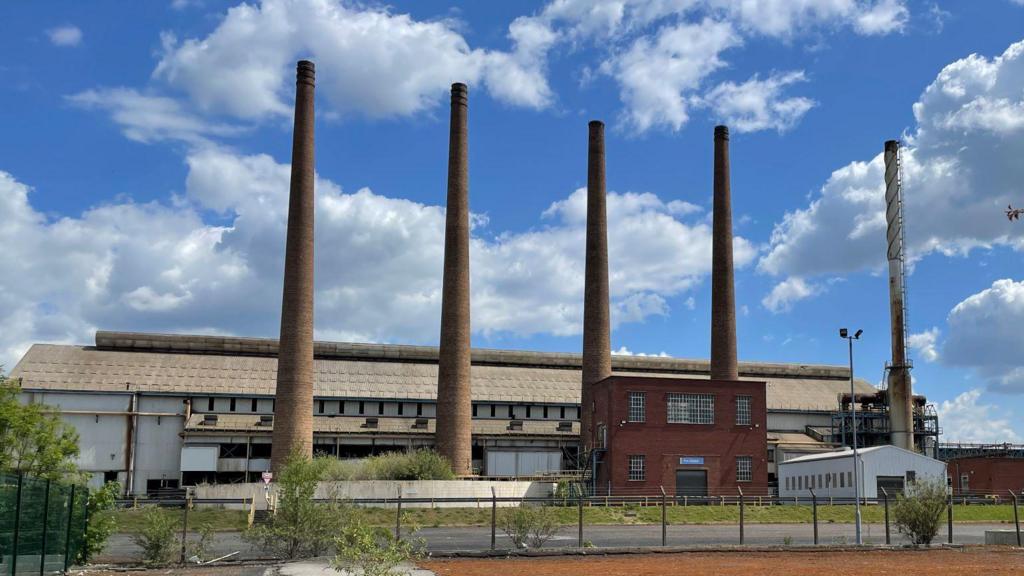“`html
One of the UK’s largest steelworks has been placed under government control, creating an uncertain future for nearly 1,500 workers in Rotherham and Sheffield.
Insolvency courts granted a compulsory winding up order sought by creditors owed hundreds of millions of pounds by Speciality Steels UK (SSUK) – part of the Liberty Steel metals empire of Sanjeev Gupta.
The company, which utilizes scrap metal in its steel manufacturing process, will now be managed by the official receiver – a government-appointed liquidator – and special managers from consultancy firm Teneo.
The government has committed to covering the plant’s ongoing wages and costs while a suitable buyer is sought.
Following the High Court decision, Liberty Steel’s Chief Transformation Officer Jeffrey Kabel expressed his disappointment to the BBC, stating he believed they had “presented a very good case”.
“We are by far the best company to run this business. We’ve run it for 10 years. Put a lot of blood, sweat and a huge amount of money into it,” he said.
In a separate statement, Mr. Kabel argued the move would “impose prolonged uncertainty and significant costs on UK taxpayers for settlements and related expenses, despite the availability of a commercial solution”.
Lawyers representing Mr. Gupta had requested a four-week adjournment to facilitate a “pre-pack administration”, a process allowing an insolvent company to sell its assets to a pre-arranged bidder.
His plan involved securing funding from investment firm BlackRock and distressed asset investor Fidera to repurchase the business.
His legal team argued that winding up the company could lead to a “free fall” situation, causing significant disruption, cost, and risk to a nationally important steel company and its 1,500 employees.
The judge determined the company was “hopelessly insolvent,” possessing £600,000 in assets against a monthly wage bill of £3.7 million, with support reliant on a parent group facing insolvency proceedings across multiple jurisdictions.
Ryan Perkins, representing the creditors, contended that UK steel-making would be better served by selling off the company’s assets under the guidance of independent special managers acting on behalf of the government, as opposed to administrators appointed by Mr. Gupta.
During a separate court hearing, Mr. Perkins presented a letter from the Department for Business and Trade indicating interest from third parties.
The court was informed that these parties had “expressed an interest in returning some or all of the sites to steel-making,” aligning with the “government’s desire.”
The letter further stated “an orderly compulsory liquidation may be one way of ensuring steel production restarts.”
Liberty Steel Group’s financial difficulties arose following the collapse of its primary lender, Greensill Capital, which owed billions to investors including UBS and Citibank. These investors are part of the creditor group that initiated the winding up petition.
Mr. Gupta’s proposed plan to place SSUK in administration and then immediately buy it back would have allowed the company to significantly reduce its debt burden.
Mr. Kabel maintained the company’s hope of repurchasing SSUK, citing “Blackrock, supporting us, and several others.”
Creditors emphasized in court that SSUK had not published financial statements since 2019, and its direct parent company, based in Singapore, was also subject to insolvency proceedings.
The government will now assume responsibility for the company’s operational and financial risks, despite its minimal steel production over the past year.
A government spokesperson affirmed its commitment to “a bright and sustainable future” for steelmaking in the UK.
The court decision follows the government’s takeover of the day-to-day operations of British Steel’s Scunthorpe plant in April, preventing its Chinese owners from closing its steel furnaces.
The entire industry has faced challenges including high energy costs, competition from cheaper overseas products, and the impact of 25% tariffs imposed by the Trump administration on exports to the US.
Following Thursday’s High Court decision, the GMB union described it as “another tragedy for UK steel.”
Chris Williamson, a union representative for Community union and employee at the Rotherham site for over 25 years, told the BBC that special managers appointed to run the business have already arrived.
“We’ve not been told anything so far. It’s all a bit up in the air, and we’ll need to see some detail”, he said.
He stated that the court’s decision “puts a closure on things,” but workers are seeking “guarantees on pay and pensions.”
Mr. Williamson noted that the Rotherham plant had not produced steel since July 2024, with most workers on furlough, receiving 85% of their wages.
“We just want certainty and to start producing steel again”, he said.
With additional reporting from Pritti Mistry and Ollie Smith
“`

